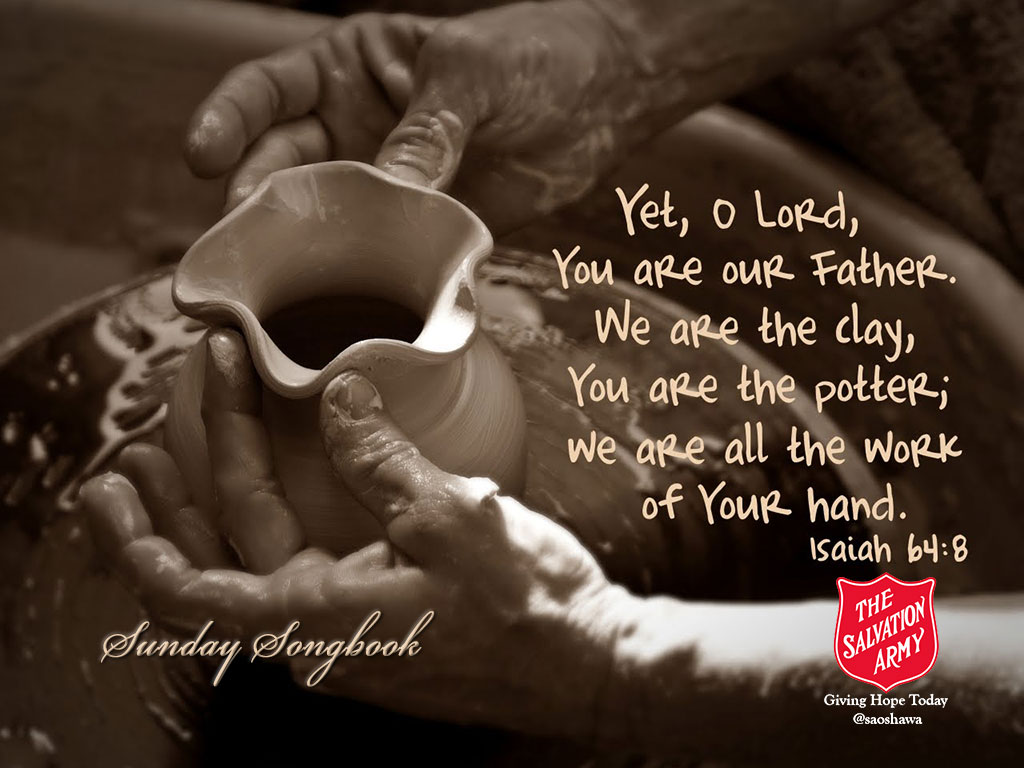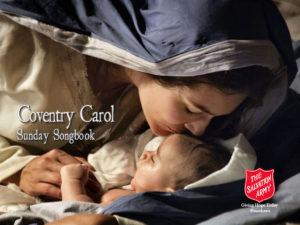Have Thine own way, Lord, have Thine own way;
Thou art the potter, I am the clay;
Mold me and make me after Thy will,
While I am waiting, yielded and still.
Have Thine own way, Lord, have Thine own way;
Search me and try me, Master, today;
Whiter than snow, Lord, wash me just now,
As in Thy presence humbly I bow.
Have Thine own way, Lord, have Thine own way;
Wounded and weary, help me I pray;
Power, all power, surely is Thine,
Touch me and heal me, Saviour divine.
Have Thine own way, Lord, have Thine own way;
Hold o’er my being absolute sway;
Fill with Thy Spirit till all shall see
Christ only, always, living in me.
The disappointment of the author in not being able to fulfil her hope of becoming a missionary in Africa led to the writing of this song, which has moved many to surrender to the Lord’s will.
 Adelaide Pollard was a determined, independent young woman. Her parents had christened her “Sarah” when she was born in 1862, but as she disliked that name, she changed it to “Adelaide” when she was older. She attended the Boston School of Oratory and taught in a Chicago girls’ school. While struggling with frail health, she came into contact with a Scottish faith healer, John Dowie. He proclaimed himself as the “Elijah” who was to precede the second coming of Christ. His attempt to build “Zion City” on 6800 acres of land he purchased was unsuccessful. However, Adelaide was apparently healed of her diabetes under Dowie’s ministry.
Adelaide Pollard was a determined, independent young woman. Her parents had christened her “Sarah” when she was born in 1862, but as she disliked that name, she changed it to “Adelaide” when she was older. She attended the Boston School of Oratory and taught in a Chicago girls’ school. While struggling with frail health, she came into contact with a Scottish faith healer, John Dowie. He proclaimed himself as the “Elijah” who was to precede the second coming of Christ. His attempt to build “Zion City” on 6800 acres of land he purchased was unsuccessful. However, Adelaide was apparently healed of her diabetes under Dowie’s ministry.
Adelaide’s next connection was with a New England evangelist named Sanford, who preached the imminent return of Jesus. This was when Adelaide felt called to work in Africa, but she was unable to raise the required financial support. By this time she was in her forties, and she felt the disappointment keenly. In a prayer meeting, she heard an elderly woman pray, “It doesn’t matter what You bring into our lives, Lord. Just have Your way with us.” The words touched Adelaide’s heart, and at home that evening she reread the story of the potter in Jeremiah 18, and then wrote the words of the above hymn. Eventually Adelaide did make it to Africa, but her time there was cut short by the outbreak of World War I. She returned to her native Scotland and later went back to America. She died in New York in 1934.
WORDS: ADELAIDE POLLARD; MUSIC: GEORGE STEBBINS
S.A. SONG BOOK, 1987 EDITION, #487; 2015 EDITION, #705
REFERENCE: MORGAN, ROBERT J., THEN SINGS MY SOUL
Flugel & Piano – Have Thine Own Way
Peggy Paton-Thomas with pianist Mrs Captain Booth (Kathie)
George Stebbins arr. James Curnow

Contemporary Arrangement






